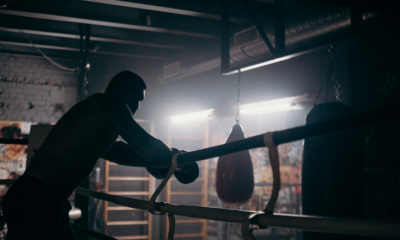Life
Your Differences Are Actually Your Greatest Professional Strengths

You’re a night owl, a mother, a daydreamer. Or maybe you grew up economically disadvantaged or deep in rural isolation. Whatever your personal difference is, you’ve likely been conditioned to believe it’s a weakness—a flaw. Something to be hidden at work.
I’m here to tell you that what you think is your weakness might, in fact, be your biggest professional strength. Our personal stories influence how we think about our abilities, achievements, and possibilities, and often, our views of ourselves are more negative than the assessments from our peers.
When You’re Different from Your Peers
I worked with a young leader in private equity named Emily who struggled with reconciling her difference from her peers, and her story taught me a lot about how we view the things that set us apart.
Emily is a bright, engaging woman with a powerful track record of achievement. A graduate of both Harvard University and Harvard Business School, she left Boston to join an elite private equity firm in California. She was promoted early and often and was soon sitting on the forty-fourth floor in a corner office. She is polished, confident, and attractive. She’s perfect, at first glance.
During our first meeting, she confessed she was exhausted. “I’m trying to keep up, but I don’t think I can. Everyone else has more time to focus on sourcing and researching deals than I do. My toddler is teething, and he’s up most of the night. I can’t stay awake when I work late at my laptop. I just keep dozing off, and I know I’m falling behind.”
Emily had looked at her peers and realized three things: First, they were all male. Second, none had children or other significant family responsibilities. Third, they each worked all day, every day. She believed that to be successful in this environment, she had to look and sound like the people around her.
Emily worked hard to remove all traces of her son from her work life. When he was born, she was checking email shortly after they left the hospital and was back in the office within six weeks. She rarely talked about him and had a deep list of nannies on call to help her stay late and start early.
“I can’t afford to be different,” she told me. We later learned Emily’s peers and manager were strongly hoping she’d be exactly that.
Personal Differences Help Evolve the Status Quo
Often, people and companies get stuck in routines. They develop a “way we’ve always done it,” and change becomes difficult. One benefit of having people with personal differences on a team is that those differences can introduce positive change that might otherwise not be considered.
For example, shortly after Emily returned to work from parental leave, her team had to deliver a pitch in New York. The three-hour meeting required six team members to fly cross-country and return in one twenty-four-hour period. Emily, nursing an infant, couldn’t figure out how to make that work and, after agonizing about her decision, asked if the team would consider a virtual option for the meeting. Could they pitch via video?
The team agreed, and the pitch went well. It was a long shot, though, and the client ultimately selected a firm with deeper experience in their niche. The team’s physical presence wouldn’t have made a difference. When they heard the news, the team members were grateful not to have spent a dozen hours in the air that day.
We Are Our Harshest Critics
Two years later, eight of the nine team members remember that pitch as successful because, while it didn’t result in new business, it allowed the team to practice their skills at pitching virtually. But Emily has never considered the day a success.
She is the lone team member who views that pitch, and that full episode, as unsuccessful. She tells herself that her proposal, and the team’s accommodation of her request, cost everyone a long-shot win.
Emily is telling herself a story about her difference. Some parts are true. She did ask the team to accommodate her need to be home with her baby. The team did lose the pitch. Those are facts.
But some parts of the story are her interpretation of the events. Her interpretation, or assessment, is different than the assessment of her team members. She believes that the pitch was lost because the team didn’t travel. She believes that the team prefers to travel, that the team puts that long-ago loss in her column, and that she now must make up that loss.
Her colleagues, however, believe the opposite. One senior partner told me, “I wish Emily would rock the boat more often. We’re looking for innovators and visionaries. She’s a great worker, but she does things the way they’ve always been done. Except for that time when she recommended we not travel to a long-shot pitch.”
Emily’s colleagues not only approved of her different behavior, but also hoped that she’d engage in it more.
“What sets you apart can sometimes feel like a burden and it’s not. A lot of the time, it’s what makes you great.” – Emma Stone
Embrace Your Differences
The lesson to take from Emily’s story is that we tend to view our differences through the harshest lens. We assume anything that goes against the status quo is wrong, a mistake, when in reality, breaking the mold is often seen as creative, confident, and innovative. These are qualities that many companies value greatly.
By embracing your differences, you open yourself up to exciting opportunities and force progress by mixing up old habits, which will take you further professionally than playing it safe and conforming ever will.
Did You Know
How Skilled Migrants Are Building Successful Careers After Moving Countries
Behind every successful skilled migrant career is a mix of resilience, strategy, and navigating systems built for locals.

Moving to a new country for work is exciting, but it can also be unnerving. Skilled migrants leave behind familiar systems, networks, and support to pursue better job opportunities and a better future for their families. (more…)
Life
10 Research-Backed Steps to Create Real Change This New Year
This New Year could finally be the one where you break old patterns and create real, lasting change.

Every New Year, we make plans and set goals, but often repeat old patterns. (more…)
Life
9 Harsh Truths Every Young Man Must Face to Succeed in the Modern World
Before chasing success, every young man needs to face these 9 brutal realities shaping masculinity in the modern world.

Many young men today quietly battle depression, loneliness, and a sense of confusion about who they’re meant to be.
Some blame the lack of deep friendships or romantic relationships. Others feel lost in a digital world that often labels traditional masculinity as “toxic.”
But the truth is this: becoming a man in the modern age takes more than just surviving. It takes resilience, direction, and a willingness to grow even when no one’s watching.
Success doesn’t arrive by accident or luck. It’s built on discipline, sacrifice, and consistency.
Here are 9 harsh truths every young man should know if he wants to thrive, not just survive, in the digital age.
1. Never Use Your Illness as an Excuse
As Dr. Jordan B. Peterson often says, successful people don’t complain; they act.
Your illness, hardship, or struggle shouldn’t define your limits; it should define your motivation. Rest when you must, but always get back up and keep building your dreams. Motivation doesn’t appear magically. It comes after you take action.
Here are five key lessons I’ve learned from Dr. Peterson:
-
Learn to write clearly; clarity of thought makes you dangerous.
-
Read quality literature in your free time.
-
Nurture a strong relationship with your family.
-
Share your ideas publicly; your voice matters.
-
Become a “monster”, powerful, but disciplined enough to control it.
The best leaders and thinkers are grounded. They welcome criticism, adapt quickly, and keep moving forward no matter what.
2. You Can’t Please Everyone And That’s Okay
You don’t need a crowd of people to feel fulfilled. You need a few friends who genuinely accept you for who you are.
If your circle doesn’t bring out your best, it’s okay to walk away. Solitude can be a powerful teacher. It gives you space to understand what you truly want from life. Remember, successful men aren’t people-pleasers; they’re purpose-driven.
3. You Can Control the Process, Not the Outcome
Especially in creative work, writing, business, or content creation, you control effort, not results.
You might publish two articles a day, but you can’t dictate which one will go viral. Focus on mastery, not metrics. Many great writers toiled for years in obscurity before anyone noticed them. Rejection, criticism, and indifference are all part of the path.
The best creators focus on storytelling, not applause.
4. Rejection Is Never Personal
Rejection doesn’t mean you’re unworthy. It simply means your offer, idea, or timing didn’t align.
Every successful person has faced rejection repeatedly. What separates them is persistence and perspective. They see rejection as feedback, not failure. The faster you learn that truth, the faster you’ll grow.
5. Women Value Comfort and Security
Understanding women requires maturity and empathy.
Through books, lectures, and personal growth, I’ve learned that most women desire a man who is grounded, intelligent, confident, emotionally stable, and consistent. Some want humor, others intellect, but nearly all want to feel safe and supported.
Instead of chasing attention, work on self-improvement. Build competence and confidence, and the rest will follow naturally.
6. There’s No Such Thing as Failure, Only Lessons
A powerful lesson from Neuro-Linguistic Programming: failure only exists when you stop trying.
Every mistake brings data. Every setback builds wisdom. The most successful men aren’t fearless. They’ve simply learned to act despite fear.
Be proud of your scars. They’re proof you were brave enough to try.
7. Public Speaking Is an Art Form
Public speaking is one of the most valuable and underrated skills a man can master.
It’s not about perfection; it’s about connection. The best speakers tell stories, inspire confidence, and make people feel seen. They research deeply, speak honestly, and practice relentlessly.
If you can speak well, you can lead, sell, teach, and inspire. Start small, practice at work, in class, or even in front of a mirror, and watch your confidence skyrocket.
8. Teaching Is Leadership in Disguise
Great teachers are not just knowledgeable. They’re brave, compassionate, and disciplined.
Teaching forces you to articulate what you know, and in doing so, you master it at a deeper level. Whether you’re mentoring a peer, leading a team, or sharing insights online, teaching refines your purpose.
Lifelong learners become lifelong leaders.
9. Study Human Nature to Achieve Your Dreams
One of the toughest lessons to accept: most people are self-interested.
That’s not cynicism, it’s human nature. Understanding this helps you navigate relationships, business, and communication more effectively.
Everyone has a darker side, but successful people learn to channel theirs productively into discipline, creativity, and drive.
Psychology isn’t just theory; it’s a toolkit. Learn how people think, act, and decide, and you’ll know how to lead them, influence them, and even understand yourself better.
Final Thoughts
The digital age offers endless opportunities, but only to those who are willing to take responsibility, confront discomfort, and keep improving.
Becoming a man today means embracing the hard truths most avoid.
Because at the end of the day, success isn’t about luck. It’s about who you become when life tests you the most.
Change Your Mindset
The Four Types of Happiness: Which One Are You Living In?
Most people chase success only to find emptiness, this model reveals why true happiness lies somewhere else.

In a world driven by rapid technological growth and constant competition, many people unknowingly trade joy for achievement. (more…)
-

 Health & Fitness2 weeks ago
Health & Fitness2 weeks agoWhat Minimalism Actually Means for Your Wellness Choices
-

 News1 week ago
News1 week agoBrandon Willington Builds 7-Figure Business by Ignoring Almost Everything
-

 Did You Know2 weeks ago
Did You Know2 weeks agoWhy Most Online Courses Fail and How to Fix Them
-

 Business2 weeks ago
Business2 weeks agoIf Your Business Internet Keeps Letting You Down, Read This
-

 Business3 days ago
Business3 days agoEntrepreneur’s Guide to Pay Stubs: Why Freelancers and Small Business Owners Need a Smart Generator
-

 Business2 days ago
Business2 days agoThe Simple Security Stack Every Online Business Needs
-

 Finances2 days ago
Finances2 days agoWhy Financial Stress Is One of the Biggest Barriers to Personal Growth
-

 Scale Your Business1 day ago
Scale Your Business1 day ago5 Real Ways to Grow Your User Base Fast
























